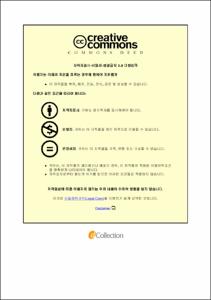Listeria monocytogenes에 대한 Chitosan-phytochemical Conjugates의 항균활성 및 특성
- Alternative Title
- Antibacterial Activity and Characteristics of Chitosan-phytochemical Conjugates against Listeria monocytogenes
- Abstract
- Listeria monocytogenes is one of the most virulent foodborne pathogens, causing listeriosis which is a severe invasive infection in humans with a particularly high case-fatality rate, up to 30 percent. Furthermore, antibiotic-resistant L. monocytogenes has recently been isolated from not only food samples but also clinical patients. To overcome the problems of side effects, medicinal plants and marine organisms have been investigated for the treatment of L. monocytogenes. Chitosan is a naturally occurring mucopolysaccharide. Several bioactivities of chitosan and chitosan-derived conjugates such as antioxidant, anticancer, antimicrobial, and enzyme inhibitory effects have also been reported. However, there is no further information on the antibacterial effect of the conjugates against L. monocytogenes. In this study, we prepared three of chitosan-phytochemical conjugates; chitosan-caffeic acid (CCA), chitosan-ferulic acid (CFA) and chitosan-sinapic acid (CSA) conjugates. All chitosan-phytochemical conjugates exhibited high anti-Listeria activity with MIC values of 8 to 64 g/mL against L. monocytogenes. Interestingly, all chitosan-phytochemical conjugates exhibited synergistic effect in combination with streptomycin. The synergistic antibacterial effect in combination with chitosan-phytochemical conjugates and streptomycin against L. monocytogenes isolates using fractional inhibitory concentration (FIC) indices. Among them, the combination of CCA-streptomycin resulted in the highest antibacterial synergy effect with a ∑FICmin range of 0.039 and a ∑FICmax of 0.157.
In addition, it determined that CCA inhibited the mRNA expression of strB gene, which is a key determinant for streptomycin resistant in L. monocytogenes. These results indicated that CCA led to the reduction or inhibition of strB protein through translational inhibition. Thus, the results obtained in this study supported the idea on antibacterial action mechanism that strpetomycin would restore the antibacterial activity against L. monocytogenes through the suppression of strB gene expression by CCA.
In conclusion, the finding obtained from this study suggests that the chitosan-phytochemical conjugates could be utilized to develop antibacterial agents which effectively control the growth of L. monocytogenes or its resistant bacteria.
- Issued Date
- 2016
- Awarded Date
- 2016. 2
- Type
- Dissertation
- Publisher
- 부경대학교 과학기술융합전문대학원
- Alternative Author(s)
- Mi Kyung Moon
- Affiliation
- 부경대학교 과학기술융합전문대학원
- Department
- 과학기술융합전문대학원 해양바이오융합과학전공
- Advisor
- 김영목
- Table Of Contents
- Abstract
Ⅰ. 서 론
Ⅱ. 재료 및 방법
1. 재료
2. 사용 균주 및 배지
3. Chitosan-phytochemical conjugates의 제조
4. Minimum Inhibitory Concentration(MIC) 측정
5. 항생제 감수성 시험
6. 항균 시너지 효과(Antibacterial synergy effect) 측정
7. RNA 분리 및 RT-PCR 분석
Ⅲ. 결과 및 고찰
1. Phytochemicals을 이용한 chitosan-phytochemical conjugates의 제조 및 구조 분석
2. Chitosan-phytochemical conjugates의 L. monocytogenes에 대한 항균활성
3. L. monocytogenes의 항생제 감수성
4. L. monocytogenes에 대한 chitosan-phytochemical conjugates와 항생제와의 synergy 효과
5. Streptomycin 내성과 관련된 strB 유전자 발현에 대한 chitosan-phytochemical conjugates의 저해 활성
Ⅳ. 결론
Ⅴ. 참고문헌
- Degree
- Master
- Appears in Collections:
- 과학기술융합전문대학원 > 해양바이오융합과학전공
- Files in This Item:
-
-
Download
 Listeria monocytogenes에 대한 Chitosan-phytochemical Conjugates의 항균활성 및 특성.pdf
기타 데이터 / 946.17 kB / Adobe PDF
Listeria monocytogenes에 대한 Chitosan-phytochemical Conjugates의 항균활성 및 특성.pdf
기타 데이터 / 946.17 kB / Adobe PDF
-
Items in Repository are protected by copyright, with all rights reserved, unless otherwise indicated.